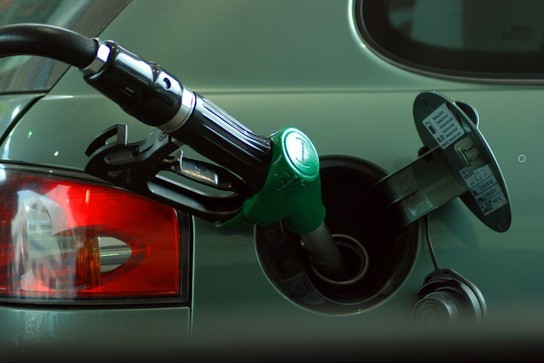Diesel & Biodiesel
Determination of Damaging Compounds in Fuels
Diesel and Biodiesel production involves many potentially efficiency-decreasing or dangerous steps if not monitored properly.
The presence of water in biofuels, for example, reduces their calorific value and increases the corrosion rate – which can in turn lead to pipe failure. Furthermore, the production of biodiesel from vegetable oils and animal fats causes formation of free and bound glycerol as by-products.
Glycerol contamination exhilarates fuel aging and causes deposits in the engine and blocked filters.
Another potentially harmful pitfall of biodiesel production is calcium and magnesium impurities that result mainly from the use of the water employed in biodiesel washing to extract water soluble foreign substances such as methanol and glycerol. In higher concentrations, these metals cause operating problems in the engine. Monitoring of these compounds is critical to ensure safe operation and a pure end product.

Regulatory Requirements and Applications
Acid Number by ASTM D664 & EN 14104
The acid number is a sum parameter for all acidic components; at the same time it is a measure of the long-term stability and corrosiveness of the biofuel. The smaller the value, the higher the quality. Standard EN 14104 stipulates a non-aqueous potentiometric acid-base titration for determining the acid number.
Moisture Determination
The presence of water in biofuels reduces their calorific value and increases the corrosion rate. Some biodiesel fuels contain additives that can participate in side reactions during the direct coulometric Karl Fischer titration. In this case, Metrohm recommends that the biodiesel sample is not injected directly into the reaction solution. Instead, the water contained in the biodiesel should be driven off in a Karl Fischer oven. The water is driven off at 120 °C and transported to the titration cell of the KF Coulometer in a stream of carrier gas (dry air or inert gas). This process can be completely automated with the 874 USB Oven Sample Processor.
Free & Total Glycerol Content by ASTM D7591 & EN 14214
The production of biodiesel from vegetable oils and animal fats leads to the formation of free and bound glycerol (monoglycerides and diglycerides) as by-products after transesterification of the triglycerides. Incomplete transesterification and/or separation of glycerol causes glycerol contamination in the biodiesel, which speeds up fuel aging and leads to deposits in the engine and blocked filters. To ensure engines operate properly, ASTM D6751 and EN 14214 limit the maximum total glycerol content (i.e., free and bound glycerol) to 0.24 and 0.25% (v/v), respectively. Free and bound glycerol is determined by ion chromatography with subsequent pulsed amperometric detection.
Iodine Number by EN 14111
Iodine number is a test for the number of double bonds in a sample. It is the amount of iodine (in g/100 g sample) that can be added to the sample under the given conditions. The determination of the iodine number in fatty acids or biodiesel is covered by European standard EN 14111.
Oxidation Stability by EN 15751 & EN 14112
Oxidation Stability by EN 15751 & EN 14112 Fatty acid methyl esters are produced from vegetable oil and usually obtained from oil seed by transesterification with methanol. Both feedstock and biodiesel have a relatively short storage life as they are slowly oxidized by atmospheric oxygen. The resulting oxidation products can damage vehicle engines. For this reason, the oxidation stability is an important quality criterion for biodiesel and vegetable oils and must therefore be checked regularly during manufacture and storage. The oxidation stability of fatty acid methyl esters is included as an essential parameter in EN 15751 & EN 14112 standards.
